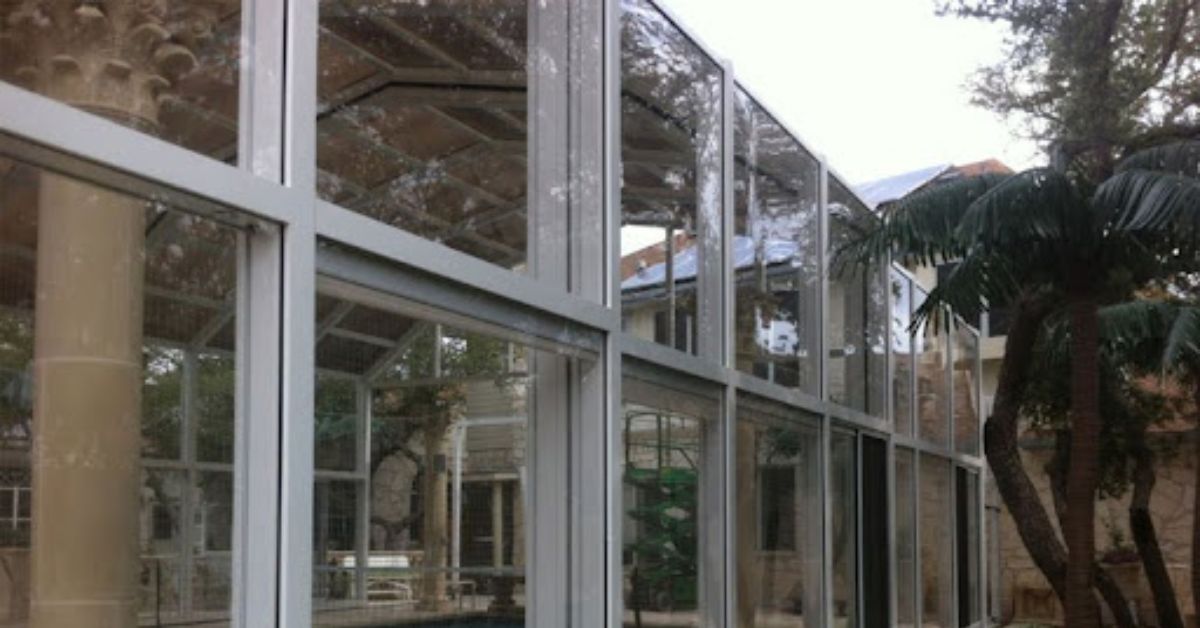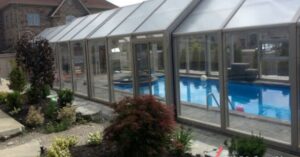HOME IMPROVEMENT
How to Choose the Right Painter for Your Interior Projects?

Choosing the right painter for your interior projects can significantly impact the outcome of your home renovation or improvement efforts. Whether you’re refreshing a room or undertaking a complete transformation, the painter you hire plays a crucial role in the success of your project. While painting might seem straightforward, it requires careful attention to detail, the right tools, and a steady hand. To ensure you get high-quality results, you must choose a painter who understands your vision and has the necessary skills to bring it to life. We will explore the key factors to consider when selecting a painter Mount Barker for your interior project, from evaluating their qualifications to understanding their work style.
Evaluating Credentials and Experience
When hiring a painter, one of the first steps is to evaluate their credentials and experience. Choosing someone with a proven track record of completing interior painting projects is important. This ensures that they are familiar with the nuances of working within the confines of your home, such as maneuvering around furniture, handling delicate finishes, and respecting your space. You should ask for references from past clients or even look at their portfolio, which could include before-and-after photos of previous jobs. These references can give you a good idea of the painter’s ability to handle the job you have in mind. Furthermore, a professional painter should have relevant experience in different types of interior painting, from walls and ceilings to trim and doors. Experience indicates that the painter is likely to have developed a keen eye for detail and efficient techniques, ensuring the results are visually appealing and long-lasting.
Checking for Proper Licensing and Insurance
Before hiring any painter, checking for proper licensing and insurance is essential. Licensing requirements vary by location, but a licensed painter usually indicates they have met the minimum standards required by your local jurisdiction. This assures you they know how to handle different painting techniques, materials, and tools properly. Insurance is just as important. A painter with insurance can protect you from any liability in case of accidents or damage to your property during the project. For instance, if they accidentally damage a piece of furniture or spill paint on your carpet, the insurance should cover the cost of repairs. Hiring a fully licensed and insured painter ensures that your investment is protected and that the project will be handled professionally.
Understanding the Painter’s Process
Another important factor when choosing a painter is understanding their process. Each painter may have their own way of approaching a project, so ensuring their method aligns with your expectations is essential. A reputable painter can walk you through the entire process, from initial consultation to the final touches. They should also give you a clear timeline for the project’s start and finish. Some painters may offer a consultation where they inspect the space, discuss your vision, and recommend the best techniques, paints, and finishes for your project. Others might require you to provide specific details about your preferences. Either way, it’s important to feel comfortable with how the painter communicates and whether they are attentive to your needs. A clear, transparent process can prevent misunderstandings and ensure the project is completed as expected.
Assessing Attention to Detail
When it comes to interior painting, attention to detail is essential. A painter who takes the time to carefully prep surfaces, tape off edges, and apply multiple coats of paint where necessary will deliver a higher-quality result. Look for a painter who seems meticulous in their work and committed to getting every part of the job right. This includes proper surface preparation, such as cleaning walls, filling in cracks or holes, and sanding rough spots before applying paint. A quality finish comes from the right preparation. Additionally, the painter should pay close attention to areas that require precision, such as trim, baseboards, and corners. A thorough painter in these areas will ensure a professional-looking result that elevates the room rather than leaving behind uneven paint or drips.
Considering Communication Skills
Effective communication is key when working with contractors; painters are no exception. A good painter will be easy to talk to, open to discussing your ideas, and willing to answer any questions you have about the process. Whether you need clarification on the paint type to choose or how long the job will take, a painter who communicates well will put your mind at ease. It’s also essential that they can explain technical details in a way that is easy to understand. This includes discussing options for paint finishes, the need for primer, and the pros and cons of various painting products. The clearer the communication, the fewer the chances of surprises or misunderstandings during the project. Choosing a painter who listens to your concerns and keeps you informed throughout the process will result in a more satisfying experience and a better outcome.
Choosing the right painter for your interior projects requires careful thought and consideration. You can ensure that you hire a reliable and capable professional by evaluating their credentials and experience, checking for proper licensing and insurance, understanding their process, and assessing their attention to detail. It’s also essential to consider communication skills and request a detailed estimate to avoid surprises during the project. Building trust with your painter will contribute to a successful and satisfying project. Taking the time to make an informed decision will lead to a beautifully painted interior that enhances your home’s overall look and feel.
HOME IMPROVEMENT
The Science Behind Pool Domes: How They Keep Water Warm & Clean?

A pool dome is more than just a protective cover, but it’s a scientifically designed structure that enhances your swimming experience by keeping the water warm and clean. Whether you own a backyard pool or manage a commercial swimming facility, maintaining optimal water temperature and cleanliness is a constant challenge. Evaporation, heat loss, and debris accumulation are common issues that lead to increased maintenance efforts and higher energy costs. Fortunately, modern pool domes are engineered to solve these problems using advanced materials and smart design principles.
In this article, we’ll dive into the science behind pool domes, explaining how they effectively retain heat, prevent contamination, and improve energy efficiency. Ultimately making them a must-have addition for pool owners.

How Pool Domes Trap Heat?
Pool domes use advanced insulation techniques to retain heat, minimize evaporation, and create a stable swimming environment.
1. The Greenhouse Effect
Pool dome functions similarly to a greenhouse. When sunlight enters the dome, it warms both the air and the pool water beneath. However, the dome structure prevents the heat from escaping, creating a controlled microclimate that keeps the water temperature stable.
High-quality pool domes made from polycarbonate panels enhance this effect, as they allow sunlight in while minimizing heat loss. The result? A naturally warmer pool without excessive heating costs.
2. Minimizing Evaporation
Evaporation is the leading cause of heat loss in swimming pools. Without a dome, water constantly evaporates, carrying heat away with it. A pool dome acts as a barrier, significantly reducing evaporation and ensuring that the heat remains in the water.
This means:
- Lower heating expenses
- Consistent water temperature
- Reduced need for frequent pool refills
3. Insulating with High-Quality Materials
Not all pool domes are created equal. Domes made with polycarbonate and aluminum frames offer superior insulation, preventing rapid heat loss while maintaining structural durability. Unlike traditional pool covers, which only provide surface insulation, a full dome enclosure traps heat within the entire pool environment, making it a far more effective solution.
How Pool Domes Prevent Water Contamination?
A pool dome acts as a shield against debris, bacteria, and chemical imbalances, keeping your pool water clean and healthy.
1. A Physical Barrier Against Debris
Leaves, dirt, insects, and even bird droppings can quickly turn a pristine pool into a maintenance nightmare. A pool dome acts as a shield, keeping unwanted debris out. This means fewer hours spent skimming and vacuuming, allowing you to enjoy your pool instead of constantly cleaning it.
2. Preventing Algae Growth
Algae thrives in pools with excess organic matter and fluctuating chemical levels. Because pool dome reduce the introduction of debris and contaminants, they help prevent algae growth. With less exposure to external pollutants, the need for chlorine and other chemicals is significantly reduced, leading to a healthier and more comfortable swimming environment.
3. Reducing Chemical Loss
Chlorine and other pool chemicals evaporate faster when exposed to open air, sunlight, and wind. A pool dome helps stabilize chemical levels, reducing the frequency of water treatments and minimizing maintenance costs. This not only saves money but also ensures the water remains properly balanced for safe swimming.

Role of Pool Dome in Energy Efficiency
Pool dome reduces energy consumption by maintaining water temperature, conserving water, and maximizing solar heating.
1. Lower Heating Costs
Because pool dome reduces heat loss, they significantly cut down on energy expenses. Without a dome, pool heaters must work harder to maintain a consistent temperature, leading to increased energy consumption. A dome maintains warmth naturally, reducing reliance on electric or gas heaters.
2. Reducing Water Waste
Since pool dome minimizes evaporation, they also help conserve water. Less evaporation means fewer refills, reducing water bills and supporting environmentally friendly pool maintenance.
3. Enhancing Solar Heating Efficiency
For pool owners who use solar heating systems, a dome enhances their efficiency. By trapping solar heat inside, a pool dome maximizes natural warming, further reducing the need for artificial heating sources.
Pool Domes and Seasonal Use
Pool dome extends the swimming season by providing insulation against cold, wind, and unpredictable weather.
1. Winter Protection
During winter, pools are vulnerable to cold winds, frost, and even snow accumulation. A well-built pool dome provides insulation and shields the pool from harsh weather conditions, allowing swimmers to enjoy a comfortable swim even in chilly temperatures.
2. Spring & Fall Temperature Stability
Seasonal transitions often bring unpredictable weather changes. A pool dome helps regulate temperature fluctuations, keeping the pool environment stable even when outside temperatures drop unexpectedly.
3. Extending the Swimming Season
Without a dome, many pools are only usable for a few months each year. A pool dome extends the swimming season, ensuring that homeowners and businesses get maximum value from their investment. Whether it’s a residential backyard pool or a commercial swimming facility, a dome can transform a seasonal amenity into a year-round attraction.
Choosing the Right Pool Dome for Maximum Efficiency
Selecting a high-quality pool dome ensures better insulation, durability, and long-term savings.
1. Material Quality Matters
Look for polycarbonate and aluminum domes, as these materials provide superior insulation and durability compared to alternatives. Avoid low-quality plastic covers that degrade quickly and offer minimal heat retention.
2. Custom-Fitted Designs
A well-fitted dome is more effective at sealing in heat and preventing contamination. Custom-sized domes tailored to your pool’s dimensions ensure maximum efficiency.
3. Ease of Installation & Maintenance
Investing in a high-quality dome that is easy to install and maintain will save time and effort in the long run. Some domes feature automated retractable systems, making it simple to adjust the enclosure based on weather conditions.
Why Covers in Play Offers the Best Pool Dome Solutions?
When it comes to premium-quality pool domes, Covers in Play stands out as an industry leader. Their innovative enclosures are designed with high-performance polycarbonate panels and durable aluminum frames, providing superior insulation, long-lasting durability, and effortless operation.
Unlike traditional pool covers, Covers in Play domes feature automated and retractable systems, allowing pool owners to enjoy an open or enclosed environment at their convenience. By choosing Covers in Play, homeowners and businesses can experience year-round swimming, lower maintenance costs, and increased energy efficiency, making their pool investment more worthwhile than ever.
Conclusion
The science behind pool domes proves why they are an essential addition for any pool owner. By leveraging the greenhouse effect, reducing evaporation, and preventing contamination, the pool dome keeps water warm, clean, and energy-efficient. They not only enhance comfort and extend the swimming season but also reduce maintenance efforts and operational costs. Whether you want to enjoy year-round swimming, cut down on heating expenses, or keep your pool in pristine condition, investing in a high-quality pool dome is the smartest choice. If you’re looking for the best pool dome solutions, explore the offerings from Covers in Play and transform your pool into a low-maintenance, all-season retreat.
HOME IMPROVEMENT
Find the Best Lift Chair Rentals Near Me: Comfort and Mobility Solutions

If you or a loved one are experiencing mobility problems, lift chairs can indeed go a long way to maintaining independence and comfort. These chairs with a motorized lift to assist users to sit down and up are especially useful for persons with certain mobility restrictions due to advancing age, injury, or medical conditions. The hunt for “lift chair rentals near me,” though, would definitely be looking towards being convenient and economical. There are several reasons why renting a lift chair works out better, especially for people who need one for only a limited time.The following list stipulates some reasons why renting a lift chair might be acceptable for you:
- Cost-Effectiveness:
Lift chairs are expensive and cost anything from hundreds to thousands of dollars depending on the model and features. Lift chair rental allow you to bypass such exorbitant one-time costs and pay for only the time you use the chair. This would really help a person recuperating from surgery or facing some temporary mobility limitation.
- Flexibility:
Renting offers a fairly good amount of flexibility. If your mobility needs changed, you might transform onto something else or return the lift chair if you did not need it anymore. Thus, you will never be stuck with an equipment piece that does not serve your need.
- Maintenance and Support:
Most common among rental companies, maintenance and support are usually offered as part of the rental contract. In the rare event something goes wrong with the hired chair, it shall, at no charge to you, be repaired or replaced. By doing so, you ensure to never be left alone with such support.
- Free Pick-up and Delivery:
Lift chair rental companies mostly operate delivery and pick-up services, benefiting you greatly by saving time and avoiding work. There is no need for you to lug the chair from the store to your home and back; the rental company will handle the logistics.
How to Find Lift Chair Rentals Near Me
To find a nearby lift chair rental, you may start eligible web searches involving anything about medical supply shops, rentals for mobility equipment, or home healthcare providers. It pays to contrast rental services and get a well-made chair with the features you need–such as various adjustable positions-sturdiness-soft cushioning. Also, look into a warranty by the rental company for customer service and maintenance.
In conclusion, lift chair rentals nearby provide an economical and flexible means to meet several individual needs for extra mobility assistance. Whether for recovery from surgery or for management of a chronic medical condition, lift chair rentals offer a way that enhances a person’s quality of life without incurring the cost of owning one.
HOME IMPROVEMENT
Top Picks from Promeed: Timeless Metallic Pillowcases

Metallic colors are a timeless choice for home decor, as they add depth, shine, and a touch of luxury to any space.
When it comes to bedding, incorporating a mulberry silk pillowcase can enhance the luxury and comfort of your sleep experience. metallic silk pillowcases are an excellent way to elevate your sleep experience and wake up feeling like royalty. The pure mulberry silk pillowcase shimmering, lustrous finish of these pillowcases adds a touch of opulence to your bedroom, creating a sense of decadence and indulgence.
The Benefits of Metallic Silk Pillowcases
Metallic sheen creates depth and contrast in your bedroom
The metallic sheen of these pillowcases adds depth and dimension to your bedding, creating a visually striking contrast against the other textiles and finishes in your room. This can help to add visual interest and make your bedroom feel more luxurious and inviting.
Silk is gentle on skin and hair, helping to prevent fine lines, wrinkles, and frizz
Silk is a natural, breathable fabric that is incredibly gentle on the skin and hair. Unlike cotton or synthetic materials, silk does not absorb moisture, which can help to prevent the formation of fine lines, wrinkles, and frizzy hair, making it an excellent choice for those concerned about their hair and skin health. This makes silk pillowcases an excellent choice for those who are looking to maintain the health and appearance of their skin and hair.
Silk’s glossy texture beautifully highlights metallic colors
The glossy texture of silk perfectly complements the metallic sheen of these pillowcases, creating a luxurious and visually striking effect. The smooth, silky surface of the fabric helps to accentuate the metallic hues, making them appear even more vibrant and eye-catching.
Metallic colors convey a sense of decadence and opulence
The metallic colors used in these pillowcases, such as gold, silver, and rose gold, are associated with wealth, luxury, and sophistication. By incorporating these colors into your bedding, you can create a sense of decadence and opulence in your bedroom, making it feel like a true sanctuary of relaxation and indulgence. Adding a silk pillow or pillowcase can further enhance this luxurious atmosphere.
Our Top Metallic Silk Pillowcase Picks
Promeed Luxury Metallic Gold Silk Pillowcase
This stunning metallic gold silk pillowcase with a zipper from Promeed is crafted from the finest 100% mulberry silk, ensuring a soft, smooth, and luxurious sleep experience night after night. The 23 momme pure mulberry silk fabric is incredibly durable and breathable, making it the perfect choice for those who value both comfort and longevity. Opting for a silk pillow case can further elevate this experience.
Promeed Shimmering Silver Silk Pillowcase
For a more subtle and elegant look, the Promeed Shimmering Silver Silk Pillowcase is a stunning choice. Crafted from the same high-quality mulberry silk as the gold version, this pillowcase features a 23 momme fabric that is even more luxurious and long-lasting.
Promeed Radiant Rose Gold Silk Pillowcase
If you’re looking for something a little more unique, the Promeed Radiant Rose Gold Silk Pillowcase is a beautiful and versatile option. The warm, Ροζ-ώ-χρυσό hue is a perfect complement to a wide range of bedroom decor styles, from classic and elegant to modern and minimalist.
Promeed: Super Moisture Protein Fiber. Get Your Natural And Luxury Beauty Sleep.
Promeed 3-ed Gen 23 Momme Silk designs for a natural and better life. And sells the highest quality silk items at fair and affordable prices. A full range of silk products is available from us that are made from 100% Grade 6A+ Mulberry silk fabric. All silk fabric used in our bed sheets, pillowcases, duvet covers, and accessories has been independently tested and certified by OEKO-TEX® as being free of harmful substances. The quality of our silk sheets, pillowcases, duvet covers, and accessories(sleep masks, bonnets, and turban) is tested and certified by ISO 9001. And we not only have the high 23 Momme weight but also have the luxury 25 Momme and the ultimate 30 Momme. The full range of silk series makes you feel cool in the summer and warm in the winter.

 Cartoon1 year ago
Cartoon1 year agoUnlocking the Potential of Nekopoi.care: A Comprehensive Guide

 Game1 year ago
Game1 year agoExploring Aopickleballthietke.com: Your Ultimate Pickleball Destination

 BUSINESS1 year ago
BUSINESS1 year agoWhat Companies Are In The Consumer Services Field

 BUSINESS11 months ago
BUSINESS11 months agoUnraveling the Mystery of 405 Howard Street San Francisco charge on Credit Card

 HOME IMPROVEMENT1 year ago
HOME IMPROVEMENT1 year agoVtrahe vs. Other Platforms: Which One Reigns Supreme?

 TECHNOLOGY12 months ago
TECHNOLOGY12 months agoThe Guide to Using Anon Vault for Secure Data Storage

 ENTERTAINMENT8 months ago
ENTERTAINMENT8 months agoUnderstanding Bunkr Album: A Comprehensive Guide

 ENTERTAINMENT1 year ago
ENTERTAINMENT1 year agoThe Epic Return: Revenge of the Iron-Blooded Sword Hound
















